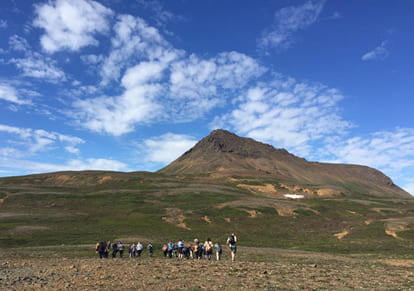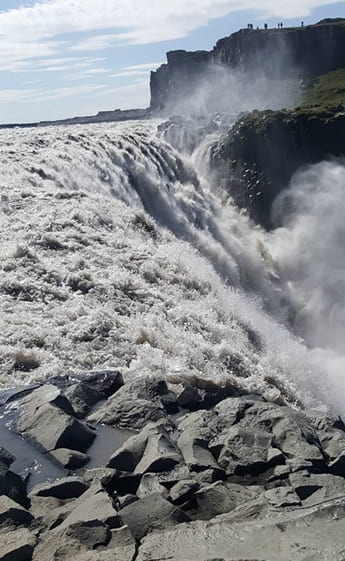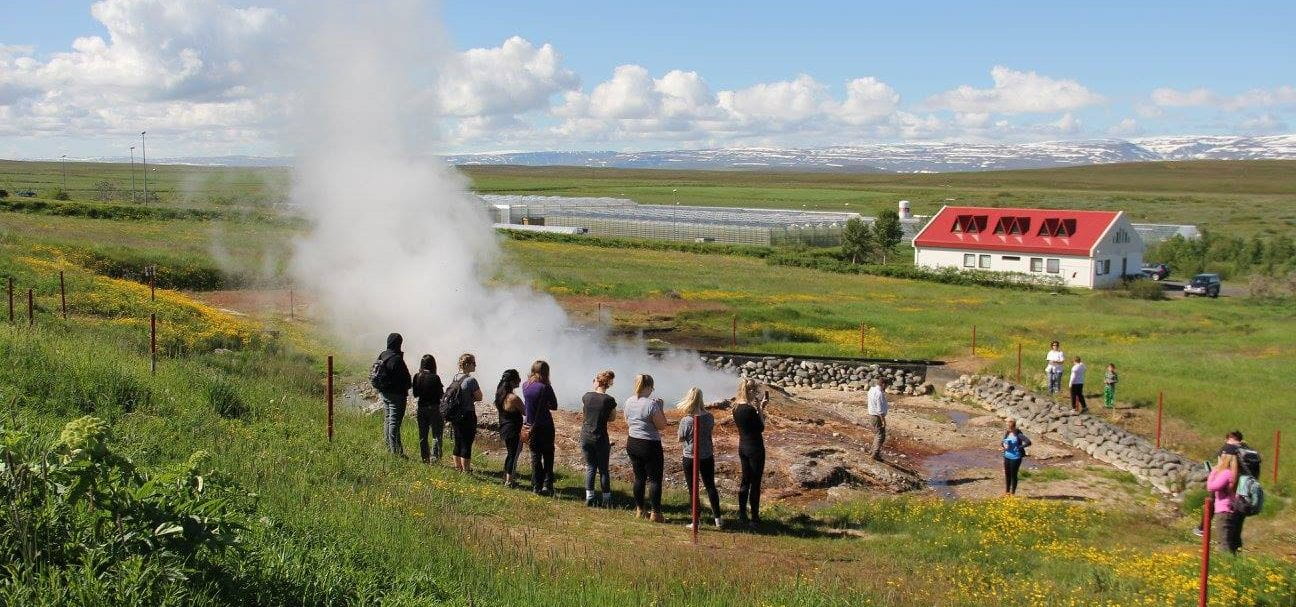For many New England college students a class like this will be the first time they’ve ever left the country. The Icelandic culture is both very foreign and very familiar. Children run and play as they please without helicopter parents constantly worrying about every little thing that might happen. The opportunity to explore nature as it exists is present for adults who are willing and able. Geysers, waterfalls and other natural phenomena can be approached without disruptive and ugly signage.

The Icelandic culture is one of personal responsibility: respect and adoration for nature. At the same time, there are numerous aspects to the culture that will appeal to idealistic young university students. Public transit is freely available in some places despite a generally high cost of all sorts of materials–including fuel–in the country.
It is in the spirit of exploration, adventure and knowledge that this course presents the topic of arctic microbiology. Prospective students will be able to sample various soils, water and other media in a country which is vast and magnificently scenic. One of the most bizarre and spectacular aspects of this northerly nation is that summer months proceed with essentially no darkness. The 24 hour light is quite disorienting for the first few days, and as a former naval aircrewman who’s been on every continent except Antarctica I can say that it is one of the oddest and most unique sensations I’ve experienced anywhere.
Icelanders are at first reserved, always intelligent, capable and welcoming. In addition to Icelandic they speak English and usually one or two other languages as encouraged by their educational system. They exhibited leadership both in the field and the lab, where their skills and knowledge allowed them to set an example for the multicultural team of would-be microbiologists.
Fieldwork in this course was simultaneously intense and completely enjoyable. Three days were spent in a sparsely populated fishing village in northern Iceland, just shy of the arctic circle, called Rauferhöfn. This town loaned us a small school, the only one in the village, as well as its resources and swimming pool. From this makeshift field station, we roamed out to various parts of the landscape in order to collect our samples. After completing the fieldwork portion of the class along with a few in-depth lectures from the highly experienced professors who organized and ran the course, we returned to Akureyri to begin lab work and continue the lecture sequence. This beautiful town along a large fjord is an ideal location for school, with a short walk along a path that includes a bridge over a waterfall running into a stream flowing from the nearby Súlur, a mountain which a few of us climbed on a nice cool rainy day we had off. The labwork was varied, busy and hugely instructional. Groups proceeded at a pace according to their knowledge and experience. This course is something unique which most students will likely not take advantage of; they will be missing out. This two week crash course in microbiology offers more knowledge and thorough teaching, application and demonstration of knowledge than any full term course I’ve ever had. It requires a student who is willing to experience new things and get outside their comfort zone, as well as contribute to a challenging team environment which will unquestionably be more valuable to any future career path than a standard course. This course is an invaluable opportunity which should not be missed by any student considering the option.


